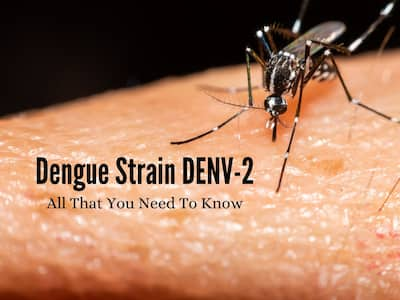
Dengue cases are on an alarming rise across India. Read on to know what precautions you need to take in order to stay safe.
Dengue cases continue to rise in the national Capital with Delhi reporting the highest number of cases in 6 years. As per the health experts, the currently dominant strain of dengue in Delhi is the highly contagious and lethal DEN-2 variant. The symptoms associated with the DEN-2 strain are very much similar to all other variants of dengue with patients more prone to shock and haemorrhage if not diagnosed and addressed in time.
The Municipal Corporation of Delhi (MCD) in its latest statement has revealed that the case count has increased to double over the last three weeks. “The current level of dengue case count is the highest reported in the last six years,” an official was quoted as saying.
In comparison to the 348 dengue cases reported between January 1 and August 5, 2023, the city had reported 174 cases in the corresponding period in 2022, 55 cases in 2021, 35 in 2020, 47 cases in 2019 and 64 cases in 2018.
Dengue Type-2 Strain Detected In Delhi Patient
Dengue cases on the rise: What’s the Denv-2 strain all about? Let’s understand more about the dengue strain that is driving new cases in the national capital.
What Is DENV-2?
Dengue is a mosquito-borne viral infection and the virus that causes the disease is called the dengue virus (DENV). The virus is spread mostly by female Aedesaegypti mosquitoes and, to a lesser extent, Ae. Albopictus mosquitoes. These mosquitoes are also carriers of the Zika, yellow fever, and chikungunya viruses.
There are four dengue virus serotypes (DENV-1, DENV-2, DENV-3 and DENV-4). Type 2, also known as DENV-2, which is currently dominant in Delhi, is considered the most severe. What makes this variant lethal is its nature. The variant after entering the body leads to low platelet counts, and sometimes it can also lead to shock and capillary leak syndrome.
READ RELATED: What To Do And What Not To Do To Induce Natural Hair Growth?
Symptoms of DENV-2
Apart from causing a severe and sudden drop in the platelet count, this variant of dengue is also capable of inviting some more serious symptoms, these include:
- Sudden onset of a fever
- Severe headache in the front
- Muscles and joints, as well as pain behind the eyes
- A decrease in taste and appetite
- Bruising on the chest
- Nausea and diarrhoea
According to the World Health Organisation (WHO), the incubation period for dengue can be 4 10 days, and symptoms that resemble the flu can linger for 2 7 days.
Total Wellness is now just a click away.
Follow us on
Don’t Miss Out on the Latest Updates.
Subscribe to Our Newsletter Today!
window.addEventListener(‘load’, (event) => {
$(‘#commentbtn’).on(“click”,function(){
(function(d, s, id) { var js, fjs = d.getElementsByTagName(s)[0]; if (d.getElementById(id)) return; js = d.createElement(s); js.id = id; js.src = “//connect.facebook.net/en_US/sdk.js#xfbml=1&version=v2.3”; fjs.parentNode.insertBefore(js, fjs);}(document, ‘script’, ‘facebook-jssdk’));
$(“.cmntbox”).toggle();
});
});









